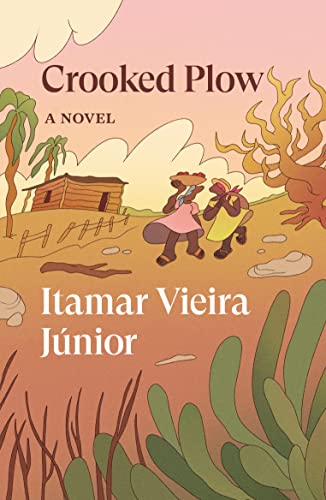Crooked Plow
Teen sisters Belonísia and Bibiana have a unique bond. After an accident involving the ivory-handled knife their grandmother has hidden in her suitcase under her bed, Belonísia is mute, her tongue slashed and lost. Bibiana speaks for her, translating her body language and gestures into words. Though the two leave the fields of Fazenda Água Negra to live their own lives, they return after their father’s death and together act as one when the livelihoods of their families and others on the plantation are threatened.
First published in Brazil in 2018, Crooked Plow received the Jabuti literary award for best Brazilian novel of the year as well as Portugal’s prestigious Prémio LeYa award. The novel describes the mid-20th century Quilombola communities, descendants of African slaves working as tenant farmers in Bahia, Brazil, three generations after the country abolished slavery in 1888.
The novel is personal – relating external rivalries as well as internal conflicts over duty, forgiveness, and responsibility. It is also mystical – tracing the path of the enchanted spirit Santa Rita Fisherwoman as she wanders, witnesses, and shelters in one of the believers of the African religion Jarě, then another.
Crooked Plow brings to vivid light the harsh realities of tenant farmers exploited by land owners who enrich themselves on the backs of the workers and yet still take much of what little the farmers save for themselves. The novel resonates with the “sounds of animals, of rustling leaves, of flowing water… the sound[s] of the world” – an illuminating journey in a dark time.










